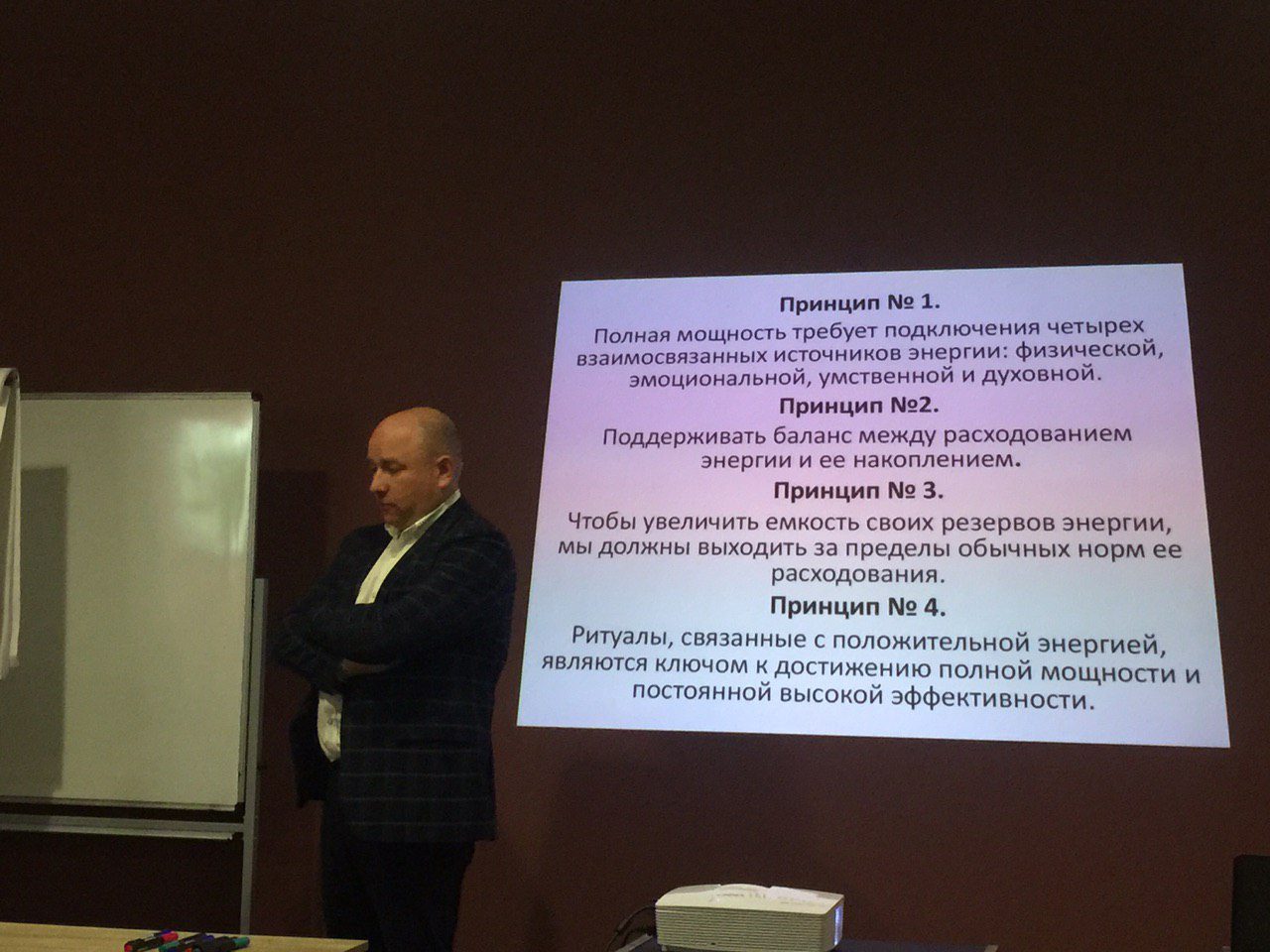
President of Ukraine Volodymyr Zelensky has emphasized that every corrupt official in Ukraine should be punished, regardless of surname, position and the sphere of activity. “Another priority is corruption crimes. Every corrupt official should be held accountable regardless of his surname, we understand whom we are speaking about, position and the sphere of activity. Be sure, as the president of Ukraine, I am your ally in this difficult struggle,” he said on the occasion of the Prosecutor’s Day on November 29.
Zelensky wished the prosecutors every day to appear in “high-profile news, in which the numbers of 5, 10, 15, 20, 50 will appear, but this will not be the amount of bribes, but the years that criminals and corrupt officials received due to your professional work.”

Real wages in Ukraine on October 2019 increased by 9.2% compared with October 2018, while compared with September 2019 they decreased by 0.3%, the State Statistics Service has said. According to the agency, the average nominal wage of full time employees in October 2019 compared with September 2019 increased by 0.4%, in annual terms (from October 2018) it also rose by 16.4%, amounting to UAH 10,727, which is 2.6 times more than the minimum wage (UAH 4,173).
The service says that in September it amounted to UAH 10,687, in August some UAH 10,573, in July some UAH 10,971, and in June to UAH 10,783.
According to the statistics agency, the largest increase in the average wage of full time employees in October 2019 compared with October 2018 was observed in Luhansk (by 22.5%), Kyiv (by 20.8%), Mykolaiv (by 20.6%), Donetsk (by 19.5%), Dnipropetrovsk (by 18.6%), Zaporizhia (by 17.9%), Cherkasy (by 17.7%), Ternopil (by 17.5%), Ivano-Frankivsk and Vinnytsia (by 16.6%), Chernihiv (by 16.2%), Sumy (by 15.9%), Chernivtsi and Khmelnytsky (by 15.2%), Rivne (by 15.1%), Odesa and Volyn (15%), Kharkiv (14.8%), Poltava (14.6%), Kherson (13.8%), Zhytomyr (13.2%), Lviv (by 13.1%), Kirovohrad (by 12.2%) regions and in Kyiv (by 14.5%).
The highest level of wages in October was recorded in Kyiv at UAH 15,862, the lowest in Chernivtsi region at UAH 8,211.
At the same time, average wages in Donetsk region amounted to UAH 11,952, Luhansk region some UAH 9,095 (except for the temporarily occupied territories).

Japan Tobacco International (JTI) is bringing the new Logic Compact electronic vaporizer to the Ukrainian market, which will be available in 27 countries by the end of the year. This was announced by JTI Ukraine Marketing Director Oleksandr Ponomarchuk during the presentation of Logic Compact in Kyiv.
“We are launching the product in Kyiv. If to look at the market, then electronic vaporizers account for 7.4%, tobacco vaporizers for 8.4%, and cigarettes for 84.2%. Moreover, the e-vape market in Kyiv doubled in a year from $33 million in 2018 to $63 million in 2019. Until 2021, we expect growth in Kyiv to $106 million and in Ukraine in general to $290 million,” he said.
Currently, the product is presented in 20 countries.
According to Ponomarchuk, the largest consumers of Logic products are the markets of Britain, France and Italy, and with the advent of Logic Compact, the largest market has become the Russian Federation.
According to him, the company sees a great potential of the product in the electronic cigarette market in Ukraine.
“We take into account market regulation. We understand that it will come sooner or later. However, the approach is based on potential – if the market is profitable, we go there,” he said.
At the same time, he said that studies have shown that product vapor contains 95% fewer components recommended by the World Health Organization for reducing in cigarette smoke.
The product will be available from November 29 in the Rozetka online store and in the Lavina Mall and River Mall shopping centers. The retail price of the device is UAH 699, a set of two replaceable cartridges costs UAH 99.
Japan Tobacco International is an international division of Japan Tobacco. It produces cigarettes under the brands Winston, Mevius, Camel, Sobranie, Glamor, and LD.

At 14:00 Kyiv time on Friday, November 29, the MaxEvents Educational Center at 51/1a Vasylia Tiutiunnyka Street (formerly Henri Barbusse Street), Office 112 (French Quarter Apartment Complex) will host a lecture by unique motivation coach Alexei Gusev on the topic “Real Estate Agent’s Growth Zones. Brief Highlights.” The event will be held with the support of the RED Community.
It is a secret to no one that a person needs to constantly develop to succeed in life.

At the workshop and lecture by Alexei Gusev, you will learn:
1. About the main trends in economics, technology, psychology over the past decade.
2. What changes constantly and what remains unchanged.
3. Who is an expert in the real estate market and why one needs to build up expertise.
4. About the strength of a real estate agent’s personal brand.
5. About basic steps to develop a brand.
6. A real estate agent is a networker. How to do networking with other people?
7. About ways to keep a client for good? Where is your money?
8. How to constantly be useful and do good to your customers?
9. How to charge with positive emotions and make other people happy.
10. About 5 basic things for professional growth of a real estate agent.
11. About books to read in the coming year. Professional advice on personal and business development.
Invest in your own and your employees’ development – this is the best investment!
Alexei Gusev is the best business coach of the Russian real estate market of the year according to CREDO. He works in all CIS countries. Candidate of Sciences in Pedagogy. Head of the Real Estate Management Institute “REALIST”. He has practical experience in the field of real estate since 1997, has succeeded in more than 500 real estate deals, conducted more than 3,000 training sessions and workshops. In 2003-2005, he worked as Rector of St. Petersburg Real Estate Institute; in 2006-2007, he was Deputy Head of the State Institute of Real Estate, St. Petersburg. Among his clients are public organizations of the real estate market from different countries.
Time: November 29, 2019 (Friday, November 29).
Agenda:
14:00 – 15:30: Part 1
15:30 – 16:00: Coffee break
16:00 – 17:30: Part 2
Venue: Kyiv’s Palats Ukrayina metro station, MaxEvents Educational Center, 51/1a Vasylia Tiutiunnyka Street (formerly Henri Barbusse Street), Office 112 (French Quarter Apartment Complex).
To register and buy tickets, please call: +38 (095) 787 7 787.
The price of a ticket is UAH 1,000 with a 10% discount for RED Community members.
www.maxevents.info

As many as 29% of Ukrainians support the passage of a bill on the land market by the Verkhovna Rada in the first reading, while 64% disapprove of this, the Kyiv International Institute of Sociology (KIIS) found after conducting a public opinion poll.
The poll showed that 11.4% of respondents fully support the Rada’s passage on November 13 of legislation allowing the sale of land and another 17.3% are inclined to support it, while 15.4% are inclined to disapprove of this decision, 50% are completely opposed, and 5.9% were undecided or refused to answer.
If a referendum on the sale of agricultural land was held in Ukraine next Sunday, 22% of Ukrainians would support it, 59% would vote against, 14% would not cast their ballots, and 5% said they were still undecided.
The KIIS polled 1,500 respondents aged 18 and older using computer-assisted telephone interviews (CATI) on November 22-25.

3-4 DECEMBER – UKRAINIAN WEALTH MANAGEMENT FORUM FROM ADAM SMITH CONFERENCES
Following the success of Adam Smith inaugural Ukrainian Wealth Management Forum in 2018 we are glad to present our second edition of the event!
It will take place on the 3-4 December 2019 and will bring together Ukrainian and International private&premier bankers, family offices& wealth management firms, private client lawyers, tax advisors and charismatic entrepreneurs.
At this year’s forum we will provide updates on the latest trends in the private banking and wealth management industry in Ukraine & Europe and closely explore the most pressing issues and problems being faced by the private banking and wealth management community today.
With this invitation via Interfax Ukraine you are entitled to a 15% discount.
Simply quote your VIP code: XUC015mINTF.
REGISTRATION ONLINE
ONLY AT THIS UNIQUE EVENT
• HEAR THE LATEST UPDATES DIRECTLY FROM SENIOR DECISION MAKERS OF THE GOVERNMENT OF UKRAINE
Government speakers who will update you on the current policies and regulations that affect the wealth management industry. In particular currency liberalisation, automatic exchange of information and CFC regulations.
– Danylo Hetmantsev, Head of the Verkhovna Rada Committee on Finance, Tax and Customs Policy Verkhovna Rada
– Elena Korobkova, Executive Director, Independent Association of Banks of Ukraine
• SPECIAL KEYNOTE “CLIENT’S PERSPECTIVE”
Vladislav Burda, Founder and Owner of RedHead Family Corporation, President, The Family Business Network Ukraine
Vladislav Burda will talk about: What issues do successful Ukrainian entrepreneurs face when planning the future of their business empires? How can they best address these issues? How should these entrepreneurs educate the next generation of business owners?
• RENOWNED INTERNATIONAL PRIVATE CLIENT LAWYER
Robert Amsterdam, Senior Partner, Amsterdam & Partners (London, UK)
Robert Amsterdam is an international lawyer with 35 years experience working on high-profile cases in emerging markets. His law firm with offices in London and Washington DC, is frequently sought after for its unique practice areas which explore synergies between public international law, international criminal law, and political advocacy.
• LEARN FROM SWISS PRIVATE BANKERS’ EXPERTISE
Karen Aslanian, Executive Vice President, Lombard Odier (Zurich, Switzerland) will present detailed case studies on Wealth Transmission in the Masterclass on Succession Planning.
Olga Freer, Director, Senior Wealth Planner at UBP will also take part in the Masterclass on Succession Planning.
Yelyzaveta Tymoshenko, Head of premium-banking development department of Credit Agricole Bank
PLUS OTHER NEW ADDITIONS TO THE AGENDA
• ART ROUND TABLE “UKRAINIAN ART MARKET TO FULL TRANSPARENCY”
Alina Plysch, Partner, Sayenko Kharenko
Alina Plysch will moderate Art Round Table and lead a discussion on: What are the new regulations being developed by the government in collaboration with Ukrainian lawyers? How will these regulations better protect the interests of collectors?
• FORMING YOUR INVESTMENT PORTFOLIO DEPENDING ON THE ECONOMIC CYCLE
Maxim Koretsky, Investment Director and Co-Owner of Blackshield Capital will talk about the formation of an investment portfolio, depending on the stage of the economic cycle.
• RESEARCHING THE NEW INVESTMENT STRATEGIES
Yuriy Fylyuk, CEO of the impact investment project Promprylad.Renovation
As part of investment panel, Yuriy will give a presentation about new business models with social impact that allow us to achieve greater sustainability in an ever-changing world unlike traditional business projects.
All this and much more at the Adam Smith Ukrainian Wealth Management Forum, which is built on our 10+ year international experience in the wealth management industry.
Click here to see initial Conference Agenda >> http://www.adamsmithconferences.com/XUC015mINTFen
Looking forward to seeing you in December in Kyiv!
Raise Your Profile with Top Industry Decision-Makers
To discuss exhibition and sponsorship opportunities, please contact Eugene Andrus at eugene@adamsmithconferences.com, Tel. +44 208 004 5702.Interfax-Ukraine – official information partner of the Forum